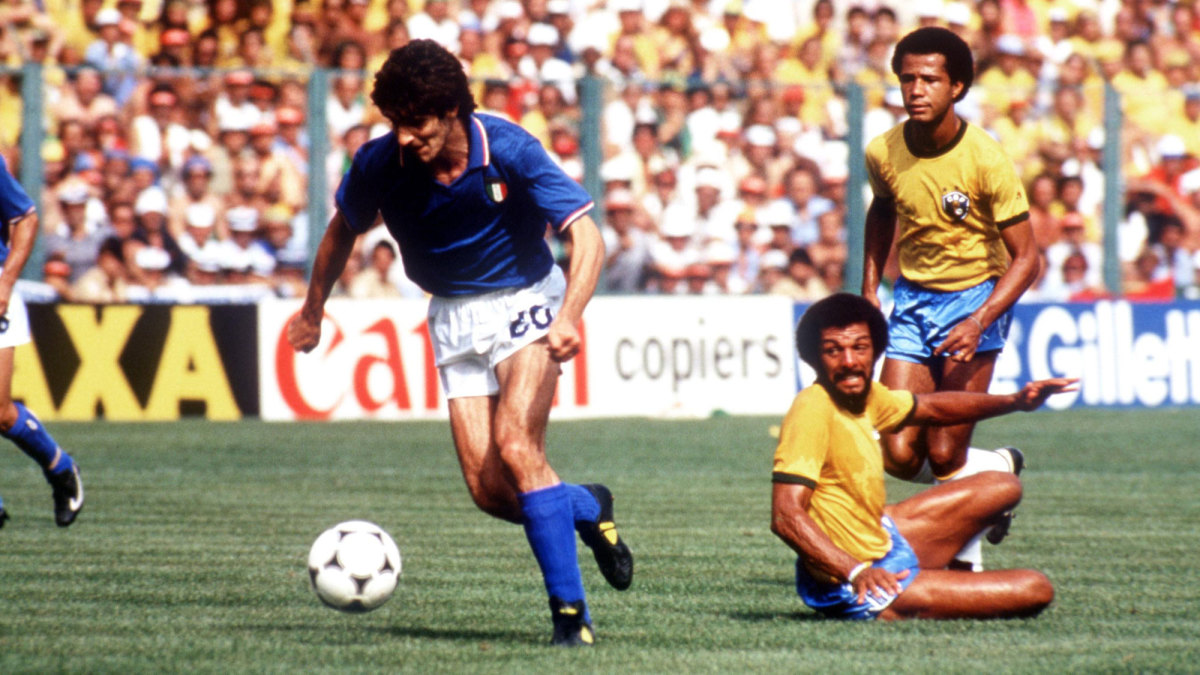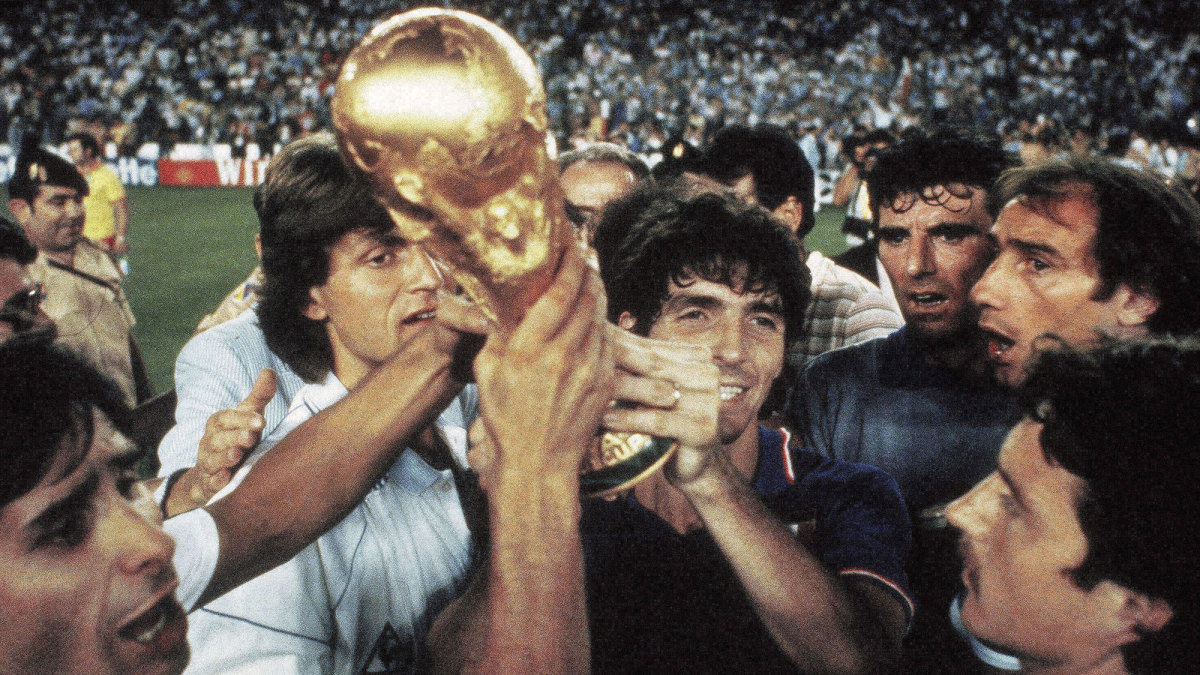The Significance and Reach of Paolo Rossi

Brazil was the favorite, a vision in yellow and cobalt blue, a team of brilliant and unpredictable forwards. There were doubts about its defending, but this was a tribute to the old Brazil, to the Brazil of myth, the legend of 1970. Italy had been dreadful through the 1982 World Cup. It had drawn all three games in the first group stage. Only goals scored had carried it through ahead of Cameroon.
True, there had been glimpses against Argentina in its first game in the second phase, but Italy’s 2-1 win over the defending champions had been the result of Claudio Gentile’s brutal marking of Diego Maradona rather than anything more constructive. Besides, Brazil had beaten Argentina, 3-1. It needed only a draw against the Italians in Barcelona to progress. But just five minutes in, an extraordinary Italy move, initiated by a Bruno Conti dribble on the right, culminated in Antonio Cabrini’s cross from the left and a perfect downward header from Paolo Rossi at the back post. What followed was perhaps the greatest game in World Cup history.
It was, Zico said, the day that football died. And perhaps for some ideal of the game as something to be improvised by individuals, that is true. But for me, a 5-year-old watching in his front room in Sunderland, some 1,200 miles north of the Estadio Sarria, (and, judging by social media, for vast numbers of other people of my generation from all around the world), it was the day football truly began. That game, more than any other, ignited my love for football. With the news late on Wednesday that Rossi had died at the age of 64, so also passed a part of our childhoods.

Rossi had been a controversial selection for Italy's World Cup squad. He was the highest-paid player in the world when, in 1980, he was given a three-year ban for his part in the Totonero match-fixing scandal–although he always protested he was innocent. Rossi missed the European Championship in 1980 as a result and would have missed the World Cup had the ban not been commuted a month before the tournament. He was 25 and should have been coming into his prime, but he hadn’t played for two years. Enzo Bearzot, the Italy manager, selected him anyway.
Short of match sharpness, Rossi struggled in the first group stage and failed to score. He didn’t score against Argentina. Surely Bearzot would drop him, right? He didn’t. Rossi’s header vs. Brazil was the beginning of his payback. Socrates equalized seven minutes later. Everybody seemed to be returning to the script. But after 25 minutes, Rossi pounced on Toninho Cerezo’s careless square pass and finished clinically: 2-1, Italy. Falcao leveled midway through the second half, but five minutes later, Brazil failed to clear a corner. Marco Tardelli shot, and Rossi pivoted six yards out to hook it past Waldir Peres, completing his hat trick and a wholly unexpected win.
The cliché had it that Italian pragmatism had won out; rather it was Italy’s capacity to take its chances, to craft one superb goal of its own and then take advantage of Brazilian errors, that decided the game.
Rossi scored two more goals against Poland in the semifinal and then opened the scoring as Italy beat West Germany in the final.
El gol a Alemania🇩🇪 en la final de España 1982🇪🇸, la 𝒐𝒑𝒆𝒓𝒂 𝒑𝒓𝒊𝒎𝒂 de Paolo Rossi con @Vivo_Azzurro🇮🇹.
— Copa Mundial FIFA 🏆 (@fifaworldcup_es) December 10, 2020
🙏🏽💙 QEPD #PaoloRossi pic.twitter.com/yvoty3i6gw
His six goals in the tournament won him the Golden Boot and the Golden Ball–and won Italy the tournament. For a generation, he became the icon of a goal-poaching center forward.
With Juventus, Rossi won two Serie A titles, the Cup-Winners Cup and then, at Heysel in 1985, the European Cup. But it is for that golden week in Spain, six goals in three games–against Brazil, Poland and West Germany, to win the World Cup–that he will live in football history. And for those of us of a certain age, he will always be even more than that.
In the past two weeks, football has lost in Rossi and Maradona, the Golden Ball winners from both the 1982 and 1986 World Cups, and also Papa Bouba Diop, the scorer of arguably the most iconic World Cup goal of the 21st century. Each of them touched people across the globe.

For me, 1982 was a first World Cup, and a first proper realization, that there was this whole exciting world beyond Britain, that players and countries and people engaged in this one activity, all doing it in their own way. Paolo Rossi was central to that; for a time his name was shouted every time somebody knocked one in from close range on the schoolyard. People from outside football often look at the saturation in coverage that the game receives and ask why it’s so important, why we pay it so much attention. This is why.
Rossi and Maradona and Diop and our shared memories of them are why. It is the great universal. Football can be an unpleasant, hostile and cynical place, but at its best it can also remind us of what we have in common.
